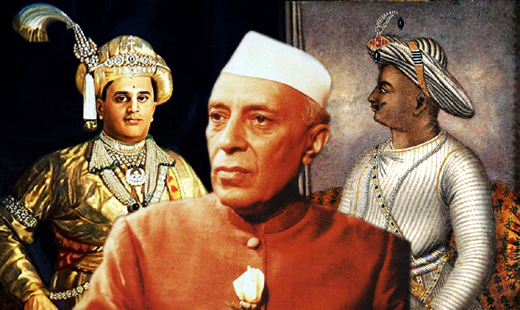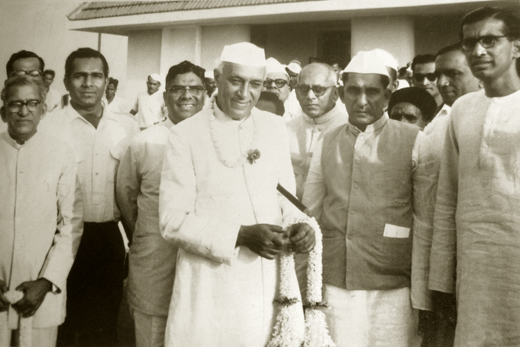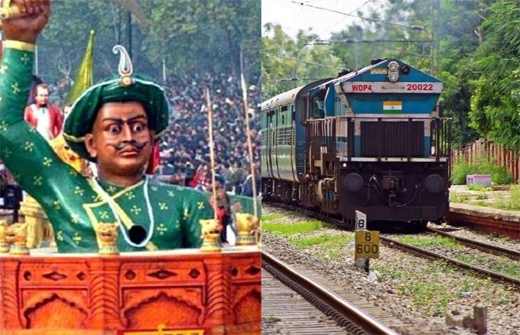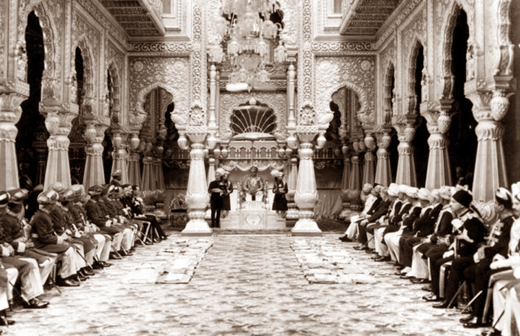All the Faults of Great Men
All the Faults of Great Men
Mangalore Today News Network
By Dr. Charles Lobo
Mangaluru, Nov 1, 2022: Jawaharlal Nehru, the first Prime Minister of India has been condemned for the foreign policy which led to the Indo-China War of 1962. Rightly so. It was a great defeat for a nascent but great nation. It was a defeat of the Pancha Sheela ideals more than the defeat on the war field. I compare this to the defeat of the Coorgies in the hands of Tipu Sultan about which our friends in Coorg are agitated about. The Christians of Mangalore should equally get agitated because about 50,000 of them were taken on foot as prisoners to Srirangapatna in 1784. ‘This was not a religious policy but one of chastisement.’ (Kate,2019) Leaving aside these dark chapters in the lives of these men, don’t we find anything bright and beautiful in their lives? Some personal thoughts on the occasion of Children’s Day, the Birthday of Jawaharlal Nehru may not be out of place.

Recently I came across the book Jawaharlal Nehru and the Indian Polity in Perspective edited by P. J. Alexander, Indian Police Service 1960 batch. He quotes Mushirul Hassan (The Hindu, November 13, 2014), a Jawaharlal Nehru Fellow, former Director General, National archives and former Vice Chancellor of Jamial Millia Islamia. “What is the Nehruvian Legacy? Those living in a vibrant parliamentary democracy and amid creative institutions should not ask this question unless they wish to be identified with the Nehru-debunkers. They must remember that Nehru kept the country together, established secular ideals, propelled it forward with the thrust of science and modernity, healed some of the wounds of partition, and stood before the world at the head of the non-aligned camp…there was always a constant element of moral austerity to serve as a counterweight.” That is Nehru in brief for Mr. Hassan.
Nehru in Mangalore
The special Dakota plane of the Air Force carrying Jawaharlal Nehru landed in the Bajpe Airport on 25 December 1950 at 4.45 PM. He was accompanied by U. S. Mallya, General Secretary of the Congress Party. He was received by Nagappa Alva, A. B. Shetty,then Minister for Agriculture (Madras Government), Rajaratnam, the then Collector, L. C. Pais and others. After inauguration of the Airport, he came for tea at the Mirajkar Bungalow and proceeded to Central Maidan (later named Nehru Maidan). Circuit House was yet to be built. Then he addressed the people gathered on Central Maidan. Was he a prophet? I asked to myself after reading the summary of the speech made by him which is relevant and reproduced below.
“After recalling the freedom struggle of India and the vital role played by the 66-year-old Congress in it, he said that several of the workers had thought that with the achievement of Swaraj they have reached the journey’s end. But with the attainment of Swaraj, the country had started on another journey of working hard to raise the standard of living of the people….”

“Continuing, Mr. Nehru said that the country had achieved political unity after Swaraj, but he felt that the setting up of a government in Delhi was not enough, what we wanted was an integrated unity, political, social and economic. The first task now was to save the unity of India, for these dissentions, as the past history of India had shown, would lead to the disintegration of the country. He vehemently criticized the Jan Sangh, Ramarajya Parishad, Hindu Mahasabha and other communal organizations. They were swearing in the name of Indian culture, Sanskrit and religion but he felt that they had no idea as to what Indian culture was and communal organizations like these hating the people of other communities would never propagate any culture or civilization but they would root out the very culture they wished to propagate. They had neither a programme nor any constructive policy. They had as their object the achievement of Akhand Bharat which was unthinkable. These organizations were essentially reactionary. He referred to the continuance of the Muslim League in Madras and said that when the Muslim League had ceased to exist all over India, some remnants of the League continued to exist in Madras and had also set up certain candidates for the elections. He wanted to tell them that, so far as the Government was concerned, it was not going to recognize communal organizations and nothing in the country would stop the Government from having this country freed from Communalism. He felt that the Muslim League could not stand for anybody.” (Mangalore, CASK, Vol. XXV, No 1, 12, Jan 1951)
How prophetic! We should remember him for these things more than anything else. The speech was made in Mangalore. What Nehru had predicted in this soil is becoming true. Can we blame Nehru for this?Are we making mistakes?
Tipu Express
Tipu Express, the train connecting Bangalore and Mysore, was renamed as Wodeyar Express recently by the Railway Board on the request made by one Member of Parliament. One State Minister even declared that Tipu is not a Kannadiga. That raises the question: who is a Kannadiga? Tipu was born to Hyder Ali at Devanahalli. Even by birth he is a Kannadiga. Fath Muhammed, Grandfather of Tipu, was born in Kolar. He was a commander of 50 men in the bamboo rocket artillery of the Nawab of Carnatic and later joined the Kingdom of Mysore. Hyder Ali was born at Budikote, which was a Jagir given to his father by the Maharaja of Mysore himself. Three generations belonged to Kolar. Therefore no one can deny that he is a Kannadiga.

Like Rani Abbakka of Ullal who fought against the Portuguese to protect her Kingdom, Tipu fought against the English to protect Mysore Kingdom. Rani Abbakka is known as a freedom fighter. Tipu took help from the French to develop the Rocket technology which was appreciated by none other than Dr. Abdul Kalam, Rocket Scientist and President of India. The main grievance against Tipu was that he had committed horrors in Coorg. But the fact is he had helped Sringeri Sansthan when the Marathas ravaged it. Now theTipu Express has been renamed after the Wodeyars.No doubt they deserve a train named after them but not at the cost of Tipu Express. That is quite communal.
Kate Brittlebank in her book Tiger- The Life of Tipu Sultan (Juggernaut, 2019) discusses in detail the role played by Tipu. Title of Chapter 2 is Son of the Soil. Who can forget the Lalbagh of Bangalore! All the great men have their pitfalls.
Mysore Chalo Movement
Coming to the Wodeyars, when Jayachamarajendra Wodeyar (1919-1974) was ruling Mysore, India became Independent on 15 August 1947. Although he had signed the accession treaty with the Union Government on 9th August 1947, the Maharaja wanted his government to continue within the Indian Union. That led to various agitations. On 28th August 1947 the Mysore Government issued an order prohibiting newspaper from publishing any news relating to this movement. Nine newspapers stopped printing the paper instead of blocking the news.

H.Narasimhaiah, rationalist and Vice Chancellor Bangalore University has explained this fight in Chapter 7 of his book Horatada Haadi.“Arcot Ramaswamy Mudaliar, the Dewan of Mysore did not hoist the Indian tricolour on the Palace and did not allow them on Mysore Government buildings on 15 August 1947. But two workers hoisted the flag above the Attara Kacheri (present High Court building).Shri K. C. Reddy was appointed as the Dictator to lead the movement. On 1 September 1947 more than one lakh people gathered in the present majestic bus stand location known as Subhash Nagar. K. C. Reddy hoisted the Tricolour and demanded a responsible democratic government. He also announced that they will not respect the Mysore Kingdom flag in future. They remembered the Delhi Chalo movement of Subhash Chandra Bose and wanted a Mysore Chalo Movement. The police intervened and removed the flag. To stop the movement from going to Mysore, K. C. Reddy was arrested on September 4, 1947. His wife Sarojamma took the lead on 4 September 1947. The Mysore Chamber of commerce and another 23 Institutions declared their support. ‘Arcot Boycott’ was the slogan. On 15th September 1947 Azad Mysore Government was formed.H. Narasimhaiah tendered resignation to his post of lecturer in the National College, Basavanagudi along with another colleague to join the Mysore Chalo Movement. They started an underground newspaper, Inquilab. On 11.9.1947 the Police did lathi charge on students. After much agitation and sacrifices, finally on 12 September 1947 the Mysore Chalo became successful and the Mysore Maharaja signed an agreement with the agitators. The flag was once again hoisted at Subbarayanakere. In 37 days, Narasimhaiah and his friends brought out 31 issues of Inquilab Giving day to day news to the public.
Even freedom fighter, H. S. Doreswamy has explained the role played by freedom fighters for accession of Mysore Kingdom with Indian Union. Doreswamy was involved in the publication of Pauravani. Many people lost their lives. Many police stations were attacked and weapons were looted. It was a serious law and order situation.
After waiting for 15 days after 15 august 1947, the Mysore Chalo started on 1 September 1947 and lasted till 12 October 1947, a total of 42 days. This is known as Mysore Chalo Movement which pressurized the Maharaja to hand over Government to People’s Representatives. On 29 October, 1947, K.C. Reddy Government came to power. Arcot Ramaswamy Mudaliar was allowed to continue till May 1949. After the Indian Constitution was adopted, the Maharaja of Mysore became the Governor of Mysore State.
After 15 August 1947 till 12 October 1947, press freedom was curbed and leaders were arrested by the Maharaja of Mysore. Hoisting of Tri-colour in Mysore Kingdom was not an allowed. Many lost their lives during this agitation and many suffered grievous injuries. Can this black spot prevent us from naming the train after the Wodeyars? There are many skeletons in our cup-boards which will come out when they are needed.
All great people have their own faults. But the faults do not make great people. The lessons learnt from them make them great.
- Need For ‘Students, Alcohol and Drugs’ survey
- New Synthetic Drugs Trapping Youth
- Mood Modifying Chips - Future of Drug Use
- Ramping up Indo-Bangla border security
- IITM- A premier educational Institution in a forest. What can we learn?
- Former PM, Manmohan Singh: Notable laws passed under his tenure
- Hashish on Ratnagiri Seashore
- The Poor cry out to Us: Do we respond?
- Clandestine Meth Labs Sprouting Across India
- Hydro ganja from Bangkok latest craze among youth in India
- "Memories to Treasure" Dr.Michael Lobo’s new book
- Dominance of Private Universities: Will it make education inaccessible to underprivileged students?
- Monti Phest: A rich heritage of South Canara
- Kashmir Bhavan in Bengaluru: A must visit place
- "MAI and I" Book of Angelic Emotions
- Draupadi Murmu - The New ’President of India’
- Anthony Ashram in the city grows a classic museum
- First College of Fisheries in India - A Golden Jubilarian
- Flushing Meadows - A Vintage Mansion
- The Colonel�s Bequest
- A Mangalorean PM and his RBI Governor Brother: The Extraordinary story of the Benegal Brothers
- There is no higher religion than Truth: Theosophical Society
- L�affaire - Ashu & Yiju of Mangalore
- Mangalore in Kowloon
- 1568 to 2018 AD: 450 years of Christianity in Mangaluru
- Vice President elect Naidu moves on from nadir to zenith, the phenomenal journey
- Embracing the Outdoors: How Heated Jackets Are Revolutionizing Cold Weather Activities
- Efficient and Sustainable Packaging Solutions with FIBCs
- The Hybrid Kilt Revolution | Where Tradition Gets Trendy
- Affordable Elegance | Embrace Style on a Budget with Cheap Kilts
- Unleashing Style and Functionality | Exploring Tactical Kilts
- Mangalore’s Heroic Lady marks 105th Birthday
- Santa the Christmas spirit
- Geriatric care: Mangalore strikes a fine balance
- The Don Who Made Two Empires to Clash
- CHITRAPUR SARASWATS - A Great Kanara Community
- Our new President Ram Nath Kovind’s significant journey to Rashtrapathi Bhavan
- Marriages made in heaven, big fat weddings made in India
- Eid insight - The giver of glad tidings
- CITY INFORMATION
- TRAVEL
- TOURIST INFORMATION
- HEALTH CARE
- MISCELLANEOUS




 Write Comment
Write Comment E-Mail To a Friend
E-Mail To a Friend Facebook
Facebook Twitter
Twitter  Print
Print 


